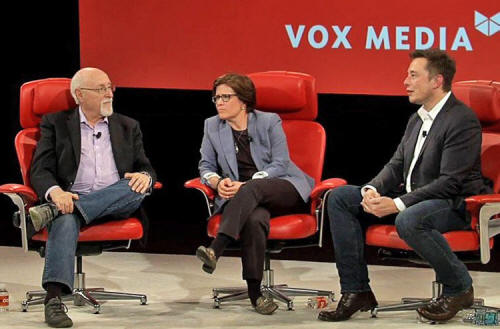|

by Alexa Erickson
June 10, 2016
from
Collective-Evolution Website

In our day-to-day lives, we see little outside of our own small
worlds.
We have our homes, our towns, our
states, and the areas we've visited to envision and digest. We don't
often consider how tiny we are in this giant universe, how little we
know about what is
out there besides what we have on Planet Earth.
But when we do, it can quickly go from
fascinating to mind-boggling.
-
Are we really the only human-inhabitated
planet?
-
Is there a more
advanced species
out there besides us?
-
Are we even, dare I say, real?
One theory which has been circulating
for some time suggests that we might be
living in a computer
simulation.
And while most people would quickly balk at the idea,
Elon Musk isn't one of them.
One of the greatest visionaries and inventors of our time, Musk,
...said in a recent interview that we
may, indeed, be characters in a highly-advanced civilization's video
game.
When asked this question at Recode's Code Conference in California
last week (far below video), Musk used the history of video games to prove his point.
Forty years ago, games were merely two-dimensional, with black and
white graphics. Today, they approach the level of virtual reality,
boasting photorealistic graphics and allowing millions of users to
play the same game at the same time online.
Soon to come is augmented reality
technology, which will further blur the lines between reality and
gaming.
With so much progress in so little time,
one can only imagine what the world of video games will have to
offer in 500 years.
"So given that we're clearly on a
trajectory to have games that are indistinguishable from
reality, and those games could be played on any set-top box or
on a PC or whatever, and there would probably be billions of
such computers or set-top boxes, it would seem to follow that
the odds that we're in base reality is one in billions,"
explains Musk.
Try to wrap your head around that:
The odds of our lives even being
REAL are one in billions!
It brings up the point that we still
know so little about the universe and the nature of reality, making
the notion that a civilization could have created a whole
holographic reality based on a computer code entirely plausible.
"Arguably we should hope that that's
true, because if civilization stops advancing, that may be due
to some calamitous event that erases civilization," Musk said.
"So maybe we should be hopeful this
is a simulation, because otherwise we are going to create
simulations indistinguishable from reality or civilization
ceases to exist.
We're unlikely to go into some
multimillion-year stasis."
Elon Musk
Full interview - Code Conference 2016
SpaceX CEO Elon
Musk talks with Recode's Kara Swisher and
The Verge's Walt Mossberg about his plans to
send a one-way rocket to Mars in 2018.
He estimates
colonists could start arriving on the Red
Planet by 2025.
Musk also talks
about the proliferation of electric vehicle
initiatives that compete with his other
company, Tesla, and why autonomous cars will
become the norm.
He says he
doesn't see Google as a competitor, but that
"Apple will be more direct."
Plus: Why Musk
wants more people to have access to the
power of artificial intelligence.
|


